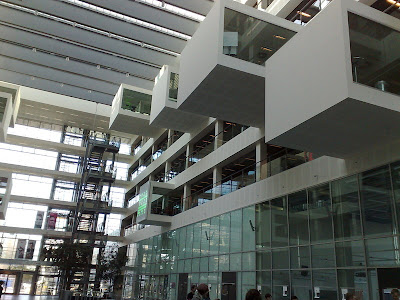Canola on the N900
Hey there. I've been extremely busy working on a very important project which is driving me and almost half of our crew mad. :P
Although it is true that the development of Canola is happening in a very slow pace, it doesn't mean that we have left the development behind. Actually many interesting things have happened lately, including of the closing of Google Summer of Code program. My very special thanks to all the people involved, students, mentors and administrators.
Coming back to the subject of this post, now that the new device is officially launched and all its features have been widely discussed all over the internet, I can share with you these pictures I've been holding for a while: Canola running on the N900.

It's still early work in progress and it is quite unstable, but I must say that it runs very smoothly, almost compared to Canola running on a regular computer. And it fits very well with the reduced size of the N900 screen.
It took me a lot of work to push all the dependencies to the extras-devel repository, always keeping in mind the backwards compatibility with Chinook and Diablo. We're still missing the proper package for Canola itself, because I wanted to make sure that it really worked before pushing it to the repositories. So, thanks to all the python goodness, it was just a matter of copying the source tree to the device and running it from the X Terminal. :D

Now back to work.



























